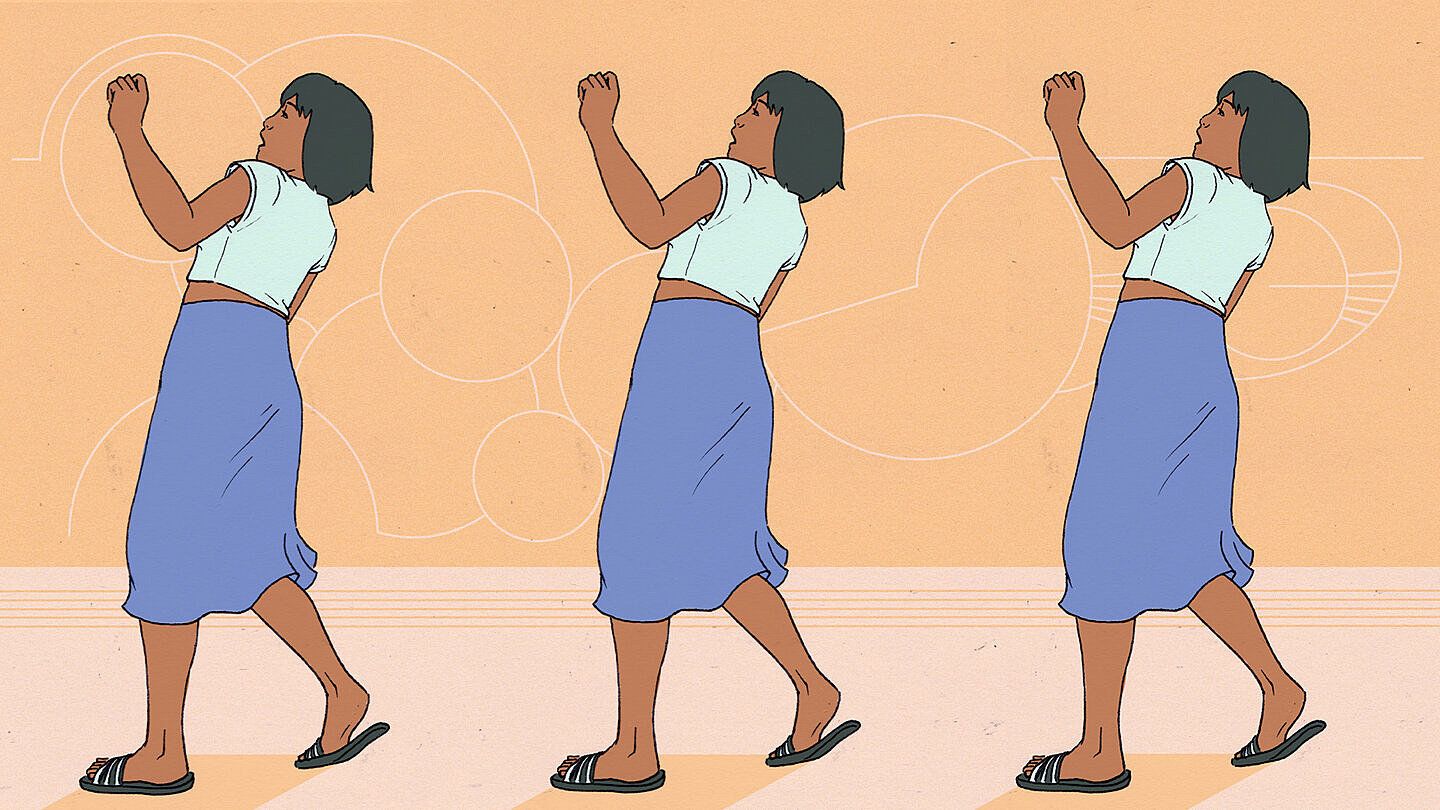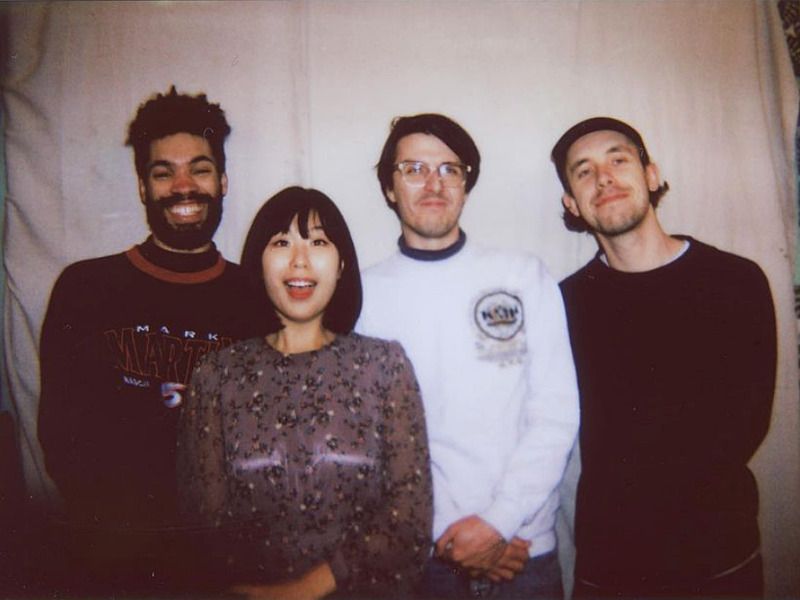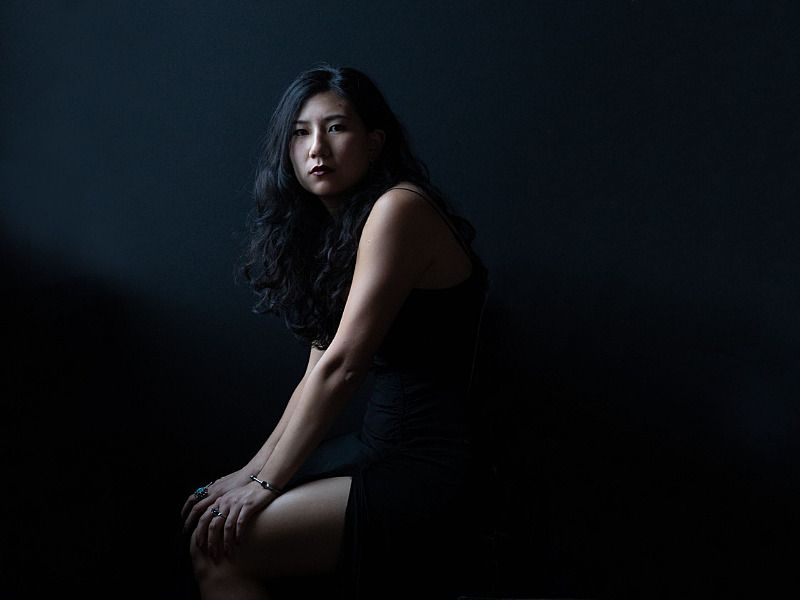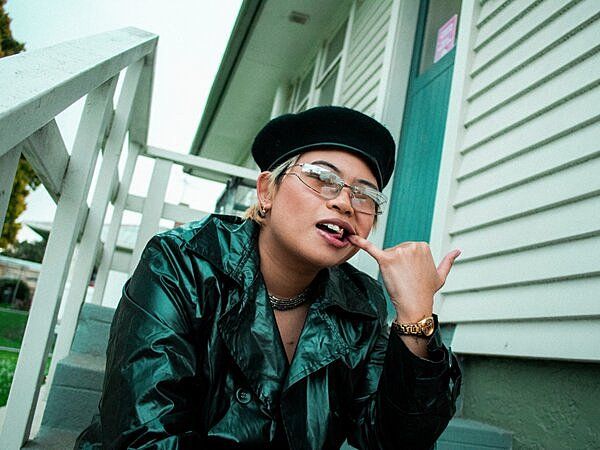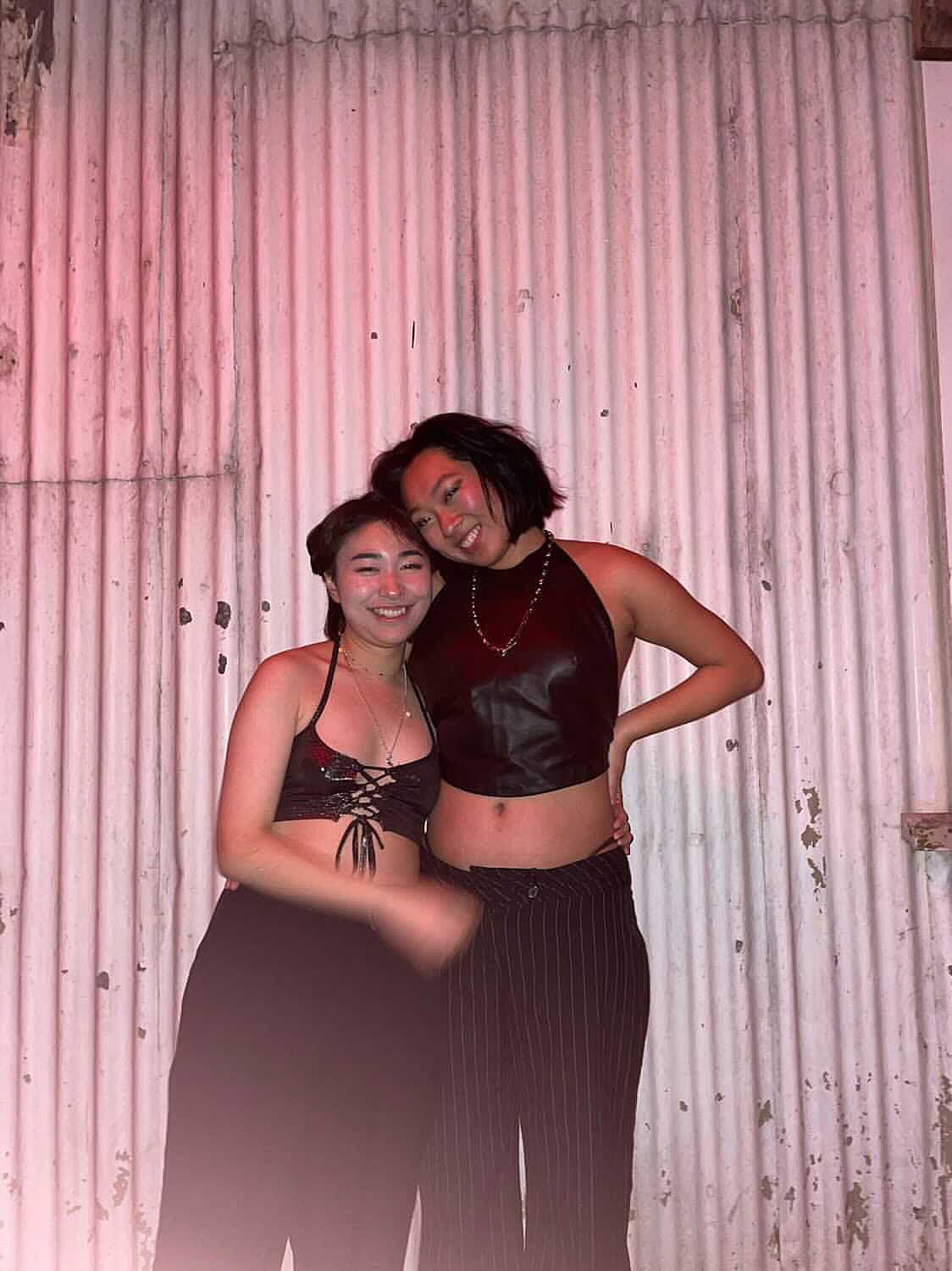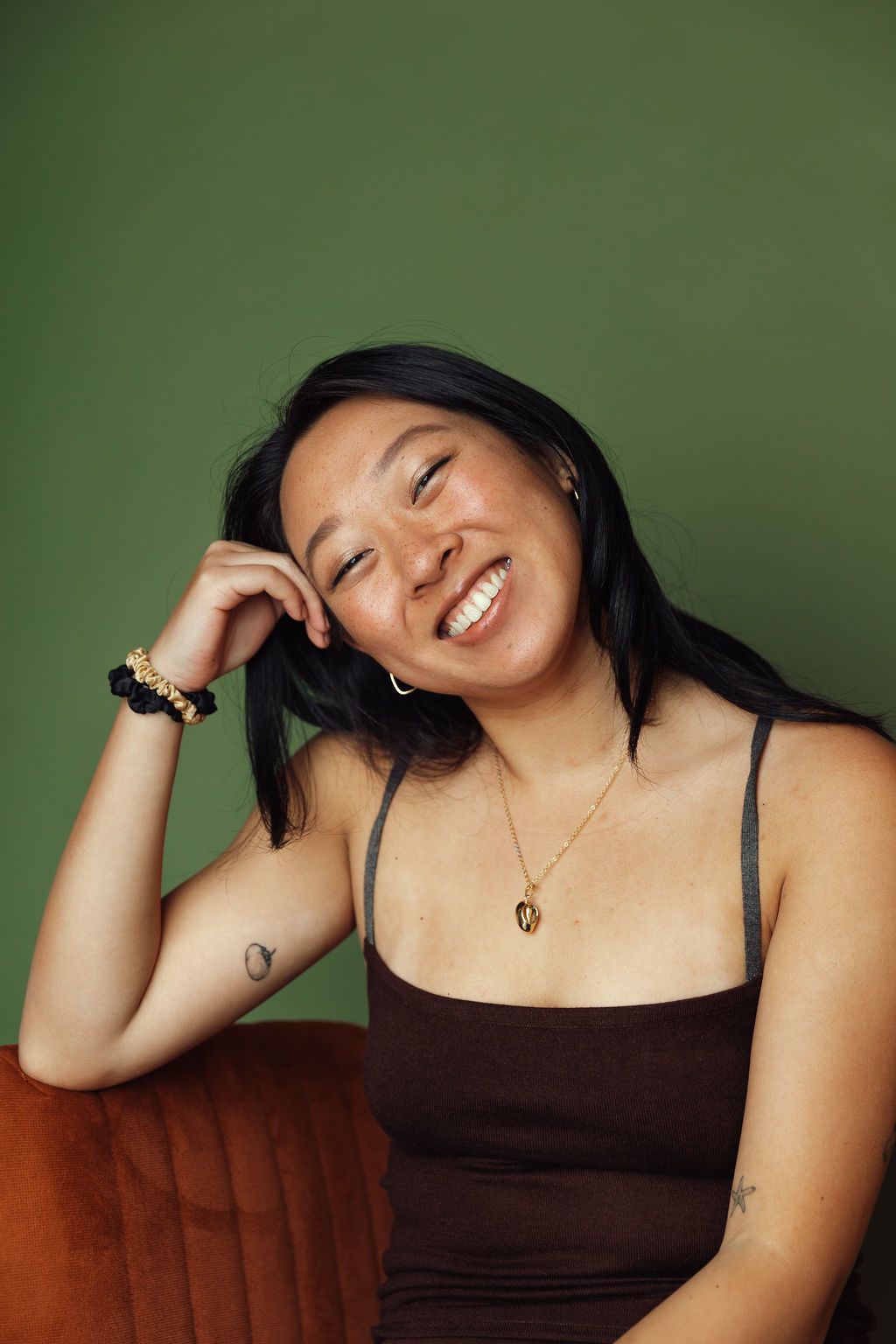9 Kiwi-Asian Musicians You Should Be Listening To
Karen Hu and Sherry Zhang chat with Kiwi-Asian musicians on culture, identity and how we can have more diversity and inclusion in the Aotearoa music industry.
TW: Depression and sexual harassment
Where are all the badass cool Asian girls in bands? If Bic Runga and Boh Runga are the only Kiwi-Asian musicians you can name, do better and expand your listening range.
Karen Hu and Sherry Zhang chat to nine Kiwi-Asian musicians, from emerging artists and underrated badasses to national darlings, on their experience of the music industry in Aotearoa. After all, our Women of Colour musicians in indie/rock/RnB/pop genres have always been here, doing the mahi, being absolutely excellent and making their community proud.
This is a celebration of the diverse perspectives from our community. From the ways their upbringing shaped their practice, to critiques of an industry that continually chews and spits out WOC and POC practitioners. From experiences of explicit racism and misogyny to institutionalised biases.
We’re picking apart the tensions in being creative when you’re from an immigrant family and the magical ways the mother tongue can create portals for another way of understanding. But in this reclamation, there’s also trauma and pain for those who’ve experienced disconnection and loss.
Honestly, we’ve had enough of the stale old stereotypes and assumptions placed on Asian musicians!
For a truly multisensory experience, here’s a Spotify playlist with all the artists profiled. We’re secretly hoping these artists will get our hint to collaborate and drop an album filled with Kiwi-Asian excellence.
*The musicians we’ve chatted with are mostly from the East and South-East Asian region. If there’s someone from our Pan-Asian (South, West) community we could have hit up, let us know! As for our Queer and Non-Binary/Trans musicians, we’d love to have more conversations for a future piece.
Slide into the DMs: [email protected] or pitch your music idea to editor [email protected].
Yery Cho
“You’re allowed to do whatever you want.”
Yery Cho is the singer-songwriter of Imugi 이무기 with producer Carl Ruwhiu. The duo started making bedroom electro-pop tracks after meeting in a statistics class at Rangitoto College. I find this truly wild because I also took statistics at Rangitoto but, instead of meeting a collaborator, I spent my time staring at the volcano, willing it to fill the sky red and put me out of my misery.
Since high school, they’ve been exploring bicultural belonging for all the Queer POC hearts out there. From the start, Cho wanted an explicitly Korean name for the duo. 이무기 means dragon, and the cover art of the first song they ever released had an old photo of Cho’s mum in it.
While she’s found the music community particularly warm, the industry doesn't quite mirror the same diversity. Cho explains the mindfuck in trying not to take the capitalist model of success too seriously: “As POC artists, if we stay too close to that definition, your self-worth can hit the floor.” She’s dealt with a fair amount of micro- and macro-aggressions, including being asked to wring out the same Asian trauma in interviews by white journalists. “It sucks, is that what they want to hear? I'm saying the same things over and over again and they’re not listening.” She clarifies that it feels different when we’re chatting. “Because we’re both out here, just trying to live and exist.”
Any time I see people doing the revolutionary act of just being yourself in a space that’s not made for you, I’m like, yes!
Cho feels particularly empowered in seeing the growing community of Asian and Queer POC artists in indie music because it’s such a white-dominated space. “Any time I see people doing the revolutionary act of just being yourself in a space that’s not made for you, I’m like, yes!”
“Being Asian and not a man, you’re raised by your parents to work harder to get halfway where your white peers are. Sometimes in our very beautiful culture,” Cho pauses and smiles bitterly, “patriarchy and oppression come out through Confucianism. We don’t get told we can be subversive; we don’t experience the wholeness of being raised to be confident.”
Cho reckons there is a need for more publications, companies and distribution labels run by Queer POC and WOC. “But then when I think about the system, I wonder if we need to throw the whole thing away.” Cho doesn’t believe the business model is safe for artists, in the way marginalised musicians are pitted against each other. “It’s a lot of self-preservation you have to learn, to not succumb to the toxic ways the industry makes you act out.”
And as Cho and I wrap up, she concludes, “We need to give land back.” – SZ
Nikita 雅涵 Tu-Bryant. Photo: Alex Wong
“I'm not a good traditional Taiwanese daughter.”
Nikita 雅涵 Tu-Bryant is a multidisciplinary artist and storyteller. Based in Pōneke, her band Kita is a mix of psychedelic rock and folk. They released their debut album earlier this year. She’s also a multi-instrumentalist and excitedly showed me around her room filled with various Japanese instruments and gu zheng 古箏. The album includes elements which emulate the erhu 二胡, another traditional Chinese instrument.
Born in Taiwan, Tu-Bryant grew up in Howick, Tāmaki Makaurau, in the early 2000s. Brought up by a strict, traditional Taiwanese mother and a rebellious Pākehā dad, Tu-Bryant says her parents fought about the best way to bring up their children. “Music was my escape. I got to hang out with people my age, because my parents knew I wasn't up to no good.” It also became her way of expressing emotions and working through traumas.
She remembers her first instrument: “How does a five-year-old relate to the violin? It’s the worst instrument to listen to when you suck at it. When I got older, I was like, Mum, this isn’t cool. I’m trying to pretend I’m not Asian, and you've given me this super-Asian instrument.” Her dad bought her a guitar when she was ten, but she says her mum was clever. “I wasn’t allowed to play the guitar until I practised the violin. For my sister, it was the drums.” And so a pact was established to cover for each other’s pretend violin practice.
She showed me her room filled with Japanese instruments and gu zheng 古箏
Tu-Bryant says they both struggled with their cultural identity growing up: “I was one of those Asian kids who put myself down about being Asian. My sister hoped if no one talked about it, maybe no one would notice. There’s such a disparity between our experiences, but at the root of it, it's still internalised racism. It was only in my 20s that I started to embrace [my culture].”
Tu-Bryant is also keenly aware of the over-sexualisation of Asian women. She recalls difficult situations in bars after playing shows, where older men would touch her inappropriately. “Just because I’m performing is not an invitation to put your hands on me.”
Like many industries, positions of power are still largely retained by men. Tu-Bryant has always felt an element of wanting to prove herself and be fiercely independent. She maintains that the most important relationship in her life will always be with creativity, as it enables her to make people feel better. And make herself feel better. – SZ
Phoebe Rings (L-R: Simeon Kavanagh-Vincent, Crystal Choi, Alex Freer, Benjamin Locke). Photo: Amanda Cheng
For Crystal’s experiences on growing up Korean, jazz school and forging her own path, read this article on Asia Media Centre.
Crystal Choi is a jazz pianist and singer–songwriter in emerging Tāmaki Makaurau dream pop band Phoebe Rings. I caught up with her in the lead-up to her debut EP release party (postponed to 13 November due to Covid-19 lockdowns).
Choi has been writing music since her teenage years, “I would sneak down at 10pm, when everyone else went to bed, to my little Yamaha midi keyboard. I didn’t know any other instruments, but the keyboard could make other noises and I loved arranging.” She grew up listening to old K-pop, with her brother and dad being big fans of the genre. “And a lot of Studio Ghibli music, it’s so magical!” Choi adds. She always knew she was going to pursue music because, as a child, she wasn’t into much else. But being a pop artist came as a bit of a surprise. “It definitely threw me off, leaving the classical side. I guess there also aren't that many Korean musicians at jazz school.”
While her parents are now supportive of her career path, Choi found it a tough process. They only stopped pressuring her to become a teacher when she proved she could earn a living. “It was hard for me. I’m the youngest, so I was the golden child. The sweet, nice and polite one. It was hard speaking out to them, [saying] I won’t meet their expectations.”
She says it was heartbreaking when they didn’t take her seriously, even though her dad was a musician. “He could have become pretty big. He has an amazing voice and ability to harmonise.” Choi’s father’s love of music is where she gets it from. But he gave it up as it was particularly difficult in his generation. The dynamic between parents and children in Asian cultures can be particularly challenging, especially around obedience and obligation. “Even Korean parents who are supportive and ambitious will often push their children to go overseas for music. They think New Zealand is this really small country. But the [music] scene is so warm. So many people helped us with our band.” – SZ
Mareea Paterson
“I learned that I needed to fight for my own life.”
Mareea Paterson is one of the understated legends of the New Zealand music scene. Some of the formidable acts she’s worked with will be familiar – American alt-rockers Veruca Salt, Tim Finn, Bic Runga, Dave Dobbyn, End of Fashion, Jordan Luck and many more. As the daughter of prolific local jazzman Kim Paterson, there was never a moment without music in her childhood. She began drumming at two years old and started classical training on violin, flute and piano at seven. She had her first taste of tour life at the age of 12, playing the flute for Blerta alongside her dad and his best mate, the late Bruno Lawrence.
However, coming to terms with her Taiwanese-Pākehā identity through the 70s to 90s proved a more challenging experience. She admits there was bullying from one side and exclusion from the other. “I became quite withdrawn and internal as a child, preferring to create and live in my own world, as the world around me wasn’t quite ready to accept me. I found it difficult to trust.” Although language and physical distance meant connecting with her Taiwanese family wasn’t always the easiest, Paterson fondly remembers the times spent with them as a child. “Even though my grandparents couldn’t speak English and I can’t speak Cantonese or Mandarin, we communicated through our love of food.”
“Some of my ‘bullies’ who’d climbed the corporate ladder decided I was actually quite exotic and therefore marketable for their brand”
Coming into adulthood, Paterson says it was eye-opening when she re-encountered a few of the shady figures from her past. “Some of my ‘bullies’ who’d climbed the corporate ladder decided I was actually quite exotic and therefore marketable for their brand.” Aside from an isolated incident where a former female band-member displayed extremely racist behaviour towards her, Paterson emphasises the welcoming experience she’s had in the New Zealand music industry.
Moving to the US gave Paterson a whole new perspective. There was a moment when an A&R rep (talent scout) approached her to join a massive MTV band, but they quickly dismissed her when they found out she wasn’t the blonde, long-haired, tattooless musician they’d envisaged. Paterson says she didn't take it to heart, wondering if it was more of an aesthetic mismatch than a decision based on her ethnicity. “They were essentially a [commercially] manufactured band. Although the concept in rock bands hadn’t been something I experienced in New Zealand before, these decisions never felt personal to me.”
When asked if she has any pearls of wisdom for aspiring musicians, Paterson recognises it’s different for everyone. For some POC musicians, it’s about coming to terms with their cultural identity. But for her, healing from other intensely painful traumas in her childhood taught her to fight for the life she wanted. Perhaps it’s this determination that meant she wasn’t fazed when she didn’t see anyone like herself in the industry growing up. Paterson believes there is value in staying focused and persisting with the things that make you feel good, even if the path’s tough. “Discover your authentic self and focus on what you can bring to the world.” – KH
Alisa Xayalith
“I sang ‘Sway’ by Bic Runga for my audition for MAINZ.”
Alisa Xayalith is the lead vocalist and keyboardist of New Zealand Music Award-winning indie electronic band The Naked and Famous. She’s currently based in the weird and wild place of Los Angeles. Xayalith single-handedly held my teenage angst as one of the few faces that looked like mine on the C4 music-video reels. Passive Me Aggressive You was the first album I bought, at 13, and for the next five years, I’d listen to it on repeat walking to high school. Growing up in South Auckland, Xayalith’s parents were refugees from Laos. She initially spoke her mother tongue at home but lost it when her mum passed away when she was seven. “It’s one of the saddest things I regret.”
Her childhood was filled with music; her dad was the singer in a Laos community band. Xayalith remembers running around at community events as a kid, amongst the drinking, karaoke and traditional Laos dancing. “It was their way of escaping whatever hardship and struggles they were going through. From their kids, to jobs, to living in New Zealand and missing home.”
Growing up, she says there are racist comments she’ll never forget. After playing a show in Dunedin, she had a beer bottle hurled at her with racial abuse. Nowadays, most of the racism she experiences is online.
I’m here for people of colour with main-character energy
It’s also heartbreaking that Xayalith describes her experience of the music industry as “pretty standard” because there were only a handful of times she had a sexist comment, or experienced inappropriate behaviour from someone in a position of power.
Xayalith says numerous other women coming up through the music industry have had similar or even worse experiences. “They meet a male A&R, meet a male manager, or meet a male record-label executive. And the dude’s like, let’s talk about it when you meet me for a drink. Let’s party. They try to take advantage of someone who’s just trying to network and advance their career.”
On a hopeful note, Xayalith is excited by the boom of Asian musicians in the alternative and pop music scene. “Let’s infiltrate and make the kind of music we grew up listening to. And see ourselves in a way we haven’t thought we’ve been allowed to before. I’m here for people of colour with main-character energy. Everyone’s embracing their otherness and having a good time doing it. I’m so proud of Asian people doing excellent work. I just want it to be a normal thing.” – SZ
Kathleen Tomacruz
On Emily Remler: “Finding videos of her on YouTube in high school was the first time I thought: I could really be like her one day. Because she’s a girl and a guitarist.”
Kathleen Tomacruz is a Tāmaki Makaurau-based musician and educator. She’s mostly a guitarist, playing for power-pop band Pocket Money. And if you look closely enough, you’ll find her behind the cello and bass, too. She also went to jazz school at The University of Auckland with Crystal Choi and Karen Hu. “It was interesting being one of three girls in my year. I think there might have been six [girls] in total out of 60 or 70 students in the entire jazz school when I started in 2015.”
Tomacruz says she was torn between choosing engineering or music after high school, and I joke that the gender ratios might have been better in engineering. But she always knew it was going to be more fun doing music. “I enjoyed the social aspect. Everyone was really good friends at jazz school, which helped me come out of my shell.” But she also remembers feeling left out in the common rooms when the boys would say “gross things about girls.”
I ask Tomacruz if she sees herself as a role model for her students, like Emily Remler was for her
Back in high school, the jazz band was a boys’ club, while most girls did classical music with the orchestra, recalls Tomacruz. She wonders if it’s because of the unnecessary gendering of instruments. Violin and cello are considered ‘feminine’, and saxophone, trumpet, electric guitar and drums are ‘masculine’. She isn’t sure why that’s the case. She thinks the low numbers of women at jazz school could also be down to the lack of role models. For Tomacruz, discovering jazz guitarist Emily Remler on YouTube in high school was the first time she saw someone like her doing what she loved. It was the first time she considered being a professional guitarist.
Tomacruz was nervous telling her grandma in the Philippines about her career choice, but was pleasantly surprised by her reaction. “She said, if it makes you happy, then go for it.” She grew up with a mix of sappy Filipino love songs from the 80s and new-age music from the tracks her dad would play in the car.
I ask Tomacruz if she sees herself as a role model for her students, like Emily Remler was for her. “Oh my god, I’ve never thought about it that way,” she laughs. “I like to think they like me as a teacher, and I'm making it interesting enough for them.” She’s taught for around five years and has noticed a fair number of female students picking up guitar. “I do my best to find what they like, to give them momentum [with music].” – SZ
Amanda Cheng
“Going to gigs became a form of full-body distraction.”
Amanda Cheng is the bassist and singer in Wax Chattels, the hard-hitting “guitarless guitar music” trio from Tāmaki Makaurau. She’s now based in New York, doing postgrad law at Columbia University. Cheng’s dark humour rears its head as she candidly discusses her struggles with mental health. “I went into music ‘cause I was depressed, I went to jazz school ‘cause I was depressed, and I went to law school ‘cause I was depressed.”
Originally from Taiwan, Cheng moved to Tāmaki Makaurau when she was six years old. Bullying at school and struggles with depression made growing up difficult. However, Cheng remembers a silver lining from the school counsellor, who also happened to be a sound engineer. He asked Lani of Elemeno P, one of Cheng’s favourite bands in school, to write her an encouraging note. “Mum laminated it and stuck it to the wall of my bedroom.”
Cheng’s parents have always been supportive of her endeavours; her mum worked in the creative industry and they are quite liberal by Taiwanese standards. Rather, it was the judgment from others in the community. The owner of her family’s local Taiwanese noodle shop was shocked when Cheng received her first guitar. “She said ‘only bad kids play rock music!’” Her mum was quick on the defence, describing Cheng as “perfectly well behaved.”
“She said ‘only bad kids play rock music!’”
When she decided to pursue music at university, her mum issued a warning: “Whatever creative field you're getting in is male-dominated. You have to be twice as good and show that you don't put up with bullshit.” Within the first few weeks, she’d already experienced gendered assumptions. “I was holding my bass, and an older student asked, what instrument do you play? Are you a singer?”
While these off-hand comments may seem harmless, it points to a lack of respect, equality and safety in music spaces in Aotearoa, particularly for younger women just starting out. Cheng and I bond over the frustration of bouncers asking us to wait at the back of the queue when trying to get into our own gigs, while our male bandmates were allowed in with no interrogation once they’d said they were in the band.1
Cheng was 18 when she started shooting gigs for a then-prominent music blog run by Andrew Tidball. “[He] sent an angry voicemail while I was in English class. He was trying to bribe me in return for sexual favours. I thought, what the fuck is this?”2
Although the patriarchy's hold over the industry is gradually being dismantled, progress is slow and the burden of the work continues to fall on women and POC. Cheng is frustrated that when the few women are asked to speak, they’re expected to speak on behalf of all women. These expectations aren't placed on men. “I don’t want to do a disservice to other women and Asians. I feel like I have to be really careful about what I say. Frankly, I’m sick of discussions about under-representation. I’m sick of being asked what it’s like being a girl in a band.” – KH
Iris Guevarra
"I just want to see more people who look like me thriving. That’s it."
Iris Guevarra, known as Iris G, is an emerging RnB singer/songwriter based in Tāmaki Makaurau. Born in New Zealand to Filipino parents, Guevarra grew up in the cultural melting pot of Avondale. As a second-generation kid, she was bullied by other Filipino kids because of her Kiwi accent when she spoke Tagalog. Eventually, Guevarra lost her mother tongue. “I had a lot of anger and resentment growing up because it was my own people who took it away from me.” She ended up finding more acceptance in other spaces. “I went to a predominantly Pasifika school, learnt Sāmoan and Tongan dances, ate chop suey and all that.”
Conversations with her family on their uprooted past prompted Guevarra to rethink her relationship with all things Filipino. “My great-grandma had to assimilate to being Chinese, my Chinese grandparents had to assimilate to being Filipino and my parents had to assimilate to being Kiwi.” She’s determined to end the trend here. So last lockdown, Guevarra began to research her family tree. She admits it’s been confronting at times. Delving into the past has opened up numerous unanswered questions about identity, trauma and loss. As is the case for many Indigenous communities worldwide, information about the past untainted by the coloniser’s lens is hard to come by. “We don’t have much information available. You think of Filipino music and it’s Spanish music, or it’s Americanised – I don’t know what our music originally sounded like.”
You think of Filipino music and it’s Spanish music, or it’s Americanised – I don’t know what our music originally sounded like
One unexpected discovery laid the foundations for her signature on-stage look, alongside the striking bleached buzz-cut. “I found out that grills actually originated in the Philippines back in 1300 AD! Every time I do something related to music, I wear them. It connects me with my ancestors, and I’m using this moment to acknowledge them, even though our history’s been erased.”
Although she’s found support through winning the Smokefree Rockquest and platforms like RNZ Music 101, the systemic issues of the New Zealand music industry continue to weigh on her mind. She’s noticed a lack of nuanced understanding of Pinoy creatives, as reflected in funding opportunities. “In the US, we were historically regarded as ‘orphans of the Pacific’,” she explains. But in New Zealand, the Filipino community is often lumped together with East Asians, even though Iris feels they don’t quite fit in. “And we can’t access Pasifika funding, even though culturally and geographically we’re very similar. In that respect, I don’t think we are welcomed as much.”
Her closing remark on what the industry here needs is simple, but it’s something we couldn’t agree with more. “I just want to see more people who look like me thriving. That’s it.” – KH
Bic Runga
“Sound has a genealogy, a whakapapa.”
Christchurch wasn't a very multicultural space when Bic Runga was growing up. But being a musician was where she found her identity and confidence. Her whakapapa includes Malaysia, Ngāti Kahungunu and Ngāti Rongomaiwahine in Hawke’s Bay.
When Runga was 11 years old, her mum bought her first drum kit and told her she could be a “great singer and drummer”, just like Karen Carpenter. Runga’s mum, a singer in Malaysia, brought her up on a mix of Mandarin and Cantonese songs.
Runga was really into Shanghai lounge diva recordings from the 1930s. “[Mum] had a few tips for me about singing based on the Chinese opera singers she was obsessed with as a child.” Runga has always pulled from both parts of her culture, including the emotive quality in waiata Māori. “It’s all wrapped up in my obsession for Western pop and rock too, so the end result is its own thing.”
Having role models is incredibly important for more diversity and inclusion in the Aotearoa music industry. Runga says she never saw an Asian woman in Western music videos until Apache Indian’s ‘Boom Shak-A-Lak’ in the early 90s. “But even in the absence [of diverse representation], someone just has to come along and smash out music so undeniably unique and well done, no one can question it.”
“Asian artists have a wealth of treasures to explore. From the timbre of instruments to scales"
Runga encourages artists to explore and weave their cultural influences when developing their pop sound. “Asian artists have a wealth of treasures to explore. From the timbre of instruments to scales. I was really inspired by Wu Tang’s use of Hong Kong movie soundtrack samples.”
And for the emerging artists out there, she offers some sage advice: “Play live until you’re impossibly good at it and then just keep going. The world itself is diverse and your audience is out there, even if you feel like the industry is not on your side yet.”
Runga is also starting her governance journey as a board member of APRA. She’s excited for more diversity in leadership, inclusive of perspectives beyond gender or race, but also lived experiences.
“When I’m unsure of how to look at something, I defer to a Māori view of how things serve people's generations ahead. And in considering who is elevated by particular decisions. Also, I feel like my mother’s wisdom, which is quite a Chinese view, always helped me. She speaks in Confucius maxims every day.”
1 Kim Gordon, founding member of Sonic Youth, had the same experience in the last handful of years. Cheng recommends her memoir, Girl in a Band.
2 Issues of sexual harassment, exploitation and abuse continue today in the industry. For more, read Beneath The Glass Ceiling and Alison Mau’s investigation.
Feature image: Daphne Zheng
